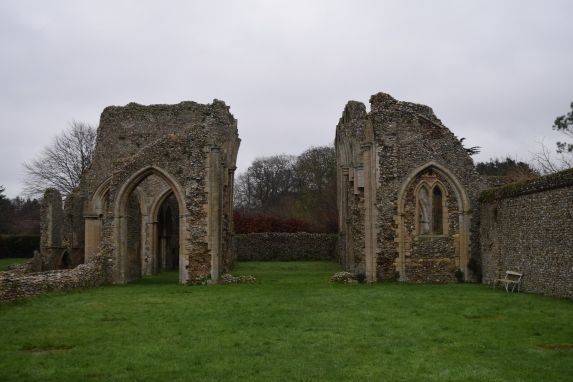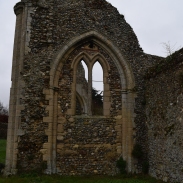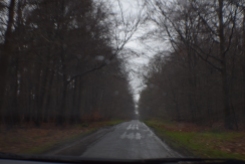So last night we decided to take another random day trip! Just live life!! We’re both off work for the day so, why not? We picked the ruins of this abbey. The ruined church of an Augustinian abbey has reduced in size after fire and plague.
It is FREE to enter and is part of English Heritage, but they do have a free to enter section on their website. If you become a member it’s all free to enter! Around £88 for two adults (joint account) for a year, not bad actually! It will pay its self off in about two to three visits! Our Stonehenge visit was roughly around £30. Anyway, back to the abbey! 
The ruins are beautiful…from the 13th century! 

Then we found this inside a cubby in one of the walls. Bibles and crosses…sad.
You can even see where the spiral stair case once was. 
It doesn’t go up very far but its still there! I can only imagine how gorgeous this abbey use to be, before the fire and disease. 

We were even able to snap a few couple pictures! ❤

The best part isn’t the destination, but the journey and adventure there!
IN love with the English country side!! 😍 On our adventure to the abbey ruins we discovered this which is now on our wanderlust list!! 🙂
Oxburgh Hall.
Now, on our way home from the ruins we stopped at this castle we saw on the way there! It was also ruins, not what we expected but still beautiful and had breathtaking views! Castle Acre Castle. The town of Castle Acre was unique and we loved it!
Castle Acre Castle was begun in the 1070s by William I de Warenne, a close associate of William the Conqueror who had fought at the Battle of Hastings. His descendants held Castle Acre until 1347 and several were major political and military figures. Within three generations the Warennes had created the castle, surrounded the town with massive ramparts and established its famous Cluniac priory. Remarkably, all three survive in recognisable form, and together give an unrivalled impression of the physical, social and religious impact of the Norman Conquest. The castle itself is particularly important for the form and development of its defences and of the stone building in the inner bailey.
-English Heritage
Check out the gate in town center!

The Bailey Gate is one of two stone gatehouses added to the settlement’s massive earthwork defenses in about 1200. The main road into the village runs between its towers. *pictured above*

And who doesn’t like an old pub! 🍻
Now onto the castle!! It was founded soon after the Battle of Hastings by the first William de Warenne.

Check out the slide show below.
And I will forever love this view!


































